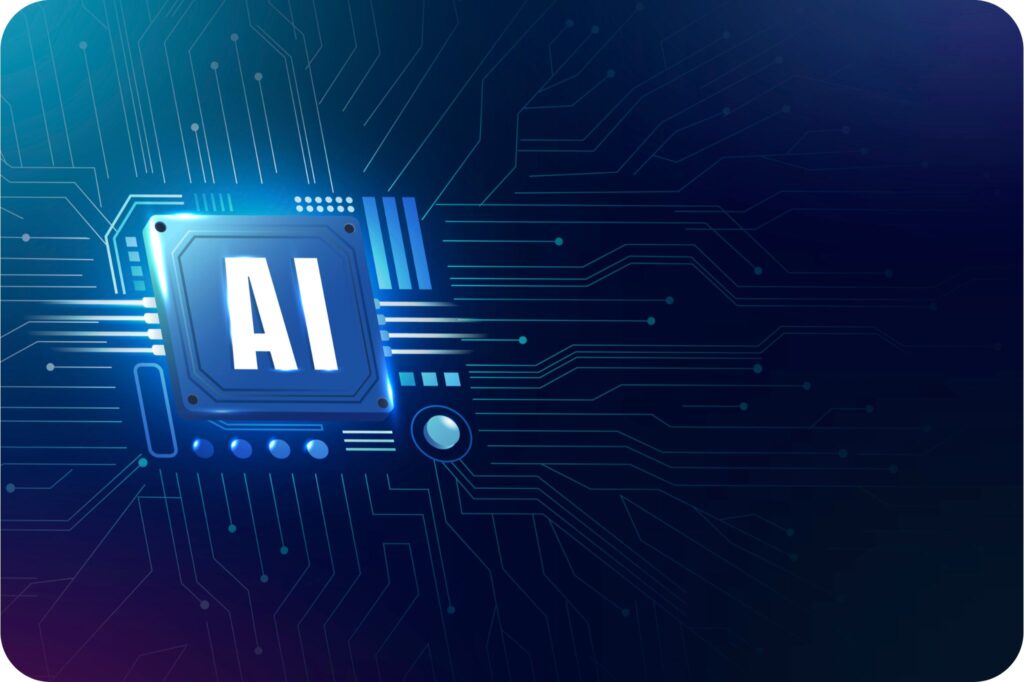
Artificial intelligence is a great catalyst for transformation in our life. A 2022 Pew Research Center survey of 11,004 U.S. adults found that 27% of respondents reported using AI multiple times a day, while an additional 28% said they engage with it either once a day or a few times each week.
Continue reading this blog to learn about the practical applications of AI in daily life in 2024.
Practical Examples of AI Applications in Daily Life
A McKinsey study found that 70% of companies experienced greater efficiency through the use of AI tools, which help streamline workflows and automate repetitive tasks. For instance, chatbots can manage up to 80% of routine customer interactions, allowing employees to focus on more strategic work. AI applications have finally moved from tech-heavy industry applications to becoming somewhat embedded in daily life. A few examples of these are:
Health sector
AI is applied to diagnosing diseases by analyzing images of medical structures or predicting patients’ outcomes with prior historical data. Wearable devices, such as smartwatches, use AI to track how our bodies react, detecting irregularities in real-time vital signs.
Now, wearable devices such as smartwatches use AI to track how our bodies react. A total of nearly 60% of users show an increase in awareness about health metrics.
AI trends 2024 in healthcare are revolutionary. AI-based systems can interpret medical images such as X-rays and MRIs with the same accuracy or even higher than human specialists. This technology also cuts time spans for diagnosis and helps in the early detection of diseases like cancer.
AI-powered telemedicine has made an excellent post-pandemic headway by facilitating remote consultation and monitoring. AI-driven health apps and wearables track everything from heartbeat to blood glucose levels, giving real-time feedback to users and doctors. AI brings together healthcare and cost containment by reducing costs and improving the quality of care.
Transportation sector
AI is a driving force for the development of autonomous vehicles, which are more reliable for consumers. Moreover, ride-sharing apps utilize AI algorithms to optimize routes, saving users time and costs.
E-commerce
AI at online shopping platforms helps provide personalized recommendations according to purchases and browsing history. It boosts sales up to 42 percent and improves shoppers’ experience. Another area where chatbots are used for support is that customers can get help instantly.
Entertainment
AI streaming services like Netflix and Spotify provide content according to user preferences, making the experience more personal and enjoyable.

How Does AI Affect Privacy and Data Security?
The widespread adoption of AI increases critical concerns over the privacy and security of information. AI systems rely on processing voluminous data, which is, in most cases, personal information. However, AI’s progress also means that even machine learning patterns can detect threats and prevent cyberattacks in real-time in cybersecurity.
AI-based encryption is not uncommon, and it has helped protect more sensitive data. AI may improve data protection up to 50%, making it much tougher for unauthorized users to access sensitive information.
Restrictions by both governments and organizations are still in demand to limit users’ data exposure, as these regulations protect users without having overly unfavorable effects on technological advancement.
Benefits of AI for Consumers and Businesses
Through AI, consumers gain more personalized services, such as curated playlists, products recommended to customers, and virtual assistants that make daily life simpler. AI increases convenience and efficiency and also elevates the user experience.
To businesses, AI means:
- Smooth operations
- Cost-effectiveness
- Better decision-making
On the other hand, AI allows business houses to offer customer support services through chatbots 24/7, with customer satisfaction multifold and retention.
Potential Risks and Challenges in AI Technology
While the advantages are numerous, AI also comes with risks and challenges. One of the major concerns surrounding AI is job displacement. Specific jobs would disappear with the automation of several tasks that currently require humans to complete them. Nevertheless, AI is expected to create new jobs, especially in developing, maintaining, and overseeing AI.
Another challenge is bias in AI algorithms. Because AI systems learn from data, they may inadvertently perpetuate existing prejudices or biases in that data. That is particularly problematic in hiring, lending, and law enforcement, where biased algorithms can mistreat specific groups.
Another ethical and security concern is the potential for the misuse of AI, like that of deep-fake technology, which presents significant risks. Therefore, cooperation between governments, businesses, and researchers should be directed toward setting responsible AI practices that reduce such risks.
What do you believe AI will change in the next few years?
In the future, AI is expected to penetrate life even more. The trend of moving to more autonomous and human-like AI systems will not stay the same. One of the most eagerly awaited breakthroughs will be the creation of AGI, where an AI might perform anything on an open domain independent of a human.
However, for several years, the development of AGI stayed in the air, but its power could change industries from healthcare to education.
AI’s Role in Smart Home Devices and Personal Assistants
Smart homes are increasingly becoming AI-driven to improve convenience in everyday life while saving energy. At their cores, smart thermostats, lighting systems, and security cameras will learn each user’s habits and preferences to create optimal settings for their comfort and security.
From smartphones to computerized personal assistants, one finds AI residing in homes with Alexa and Google Assistant.
Conclusion
AI is transforming, from optimizing work processes to improving healthcare, according to personalized forms of entertainment and enhancing security. That’s where the “benefits” finally take an overhand and weigh against the challenges associated with personal data privacy or bias-cum-alternative job displacement, all in the anticipation that AI will change not just industries but redefine jobs and how we interact with technology.
FAQs
How is AI changing the way we work and interact with technology?
AI is changing work, obligating us to change the way we work and engage with technology. It does so by automating repetitions inside the workplaces where most of the clerical and monotonous work can be disposed of and human beings concentrate on other strategic and creative pursuits.
Some of the real-life demonstrations of AI applications?
Some of the real demonstrations of AI use cases in your daily life include:
- Personal Assistants: The tools such as Siri, Google Assistant, and Alexa will assist you to schedule, remind about things, and retrieve information.
- Recommendation Systems: Netflix and shopping models such as Amazon employ AI to suggest content or products based on user preferences.
- Navigation and Maps: Applications such as Google Maps utilize AI for real-time updates on traffic and optimal routing.
- Smart Home Devices: Thermostats and security cameras, for example, use AI to learn what users prefer and improve energy efficiency or security.
What is the effect of AI on privacy and data security?
A few significant risks associated with unauthorized access to the personal data and potential misuse have thus brought forth the necessity for more robust regulation and ethical measures about the use of data.
What are the consumer and business advantages of AI?
AI presents opportunities for highly individualized experiences, greater convenience, and faster service delivery. For businesses, AI ensures higher productivity, cost-saving efficiencies, and decisions based on evidence from data. AI also results in enhanced customer engagement, which translates to loyalty and competitive advantage in no time.
What are the risks or challenges associated with AI technology?
The potential risks involved with AI technology are:
- Bias and Discrimination: The bias that AI may hold is preserved in the data, and it might lead to discrimination or unfair treatment in hiring, law enforcement, among other things.
- Job Displacement: The other issue is the replacement of jobs and potential losses in several sectors relating to employment and a future workforce.
- Privacy Concerns: The collection and review of personal data pose risks to individual privacy and data security.
- Dependence on Technology: Over-reliance on AI causes decreasing human skills and the deterioration of critical thinking abilities.
